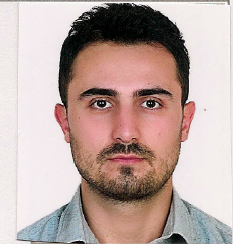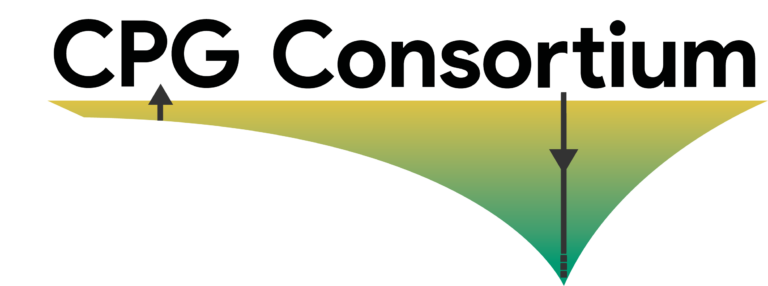
Mailing Address
Serhat Küçük
Geothermal Energy & Geofluids
Institute of Geophysics
NO F 51.1
Sonneggstrasse 5
CH-8092 Zurich Switzerland
Contact
| Phone | +41 44 632 2558 |
| serhat.kucuk(at)eaps.ethz.ch |
Administration
| Prisca Maurantonio | |
| +41 44 632 3465 | |
| prisca.maurantonio@eaps.ethz.ch | |
Publications
[Go to Proceedings Refereed] [Go to Proceedings Non-Refereed] [Go to Theses]
Underlined names are links to current or past GEG members
REFEREED PUBLICATIONS IN JOURNALS
1.
Küçük, S., R. Farajzadeh, M. Brehme, W.R. Rossen, and M.O. Saar, CO2-Plume Geothermal (CPG) after enhanced oil recovery (EOR), Geoenergy Science and Engineering, 257 Part B, 2026. https://doi.org/10.1016/j.geoen.2025.214261 [Download] [View Abstract]The global energy transition requires novel carbon utilization methods to enable integrated and optimized low-carbon energy production. Coupling CO2-based geothermal energy extraction with CO2-enhanced oil recovery (EOR) represents a promising yet largely unexplored approach for improving resource efficiency and carbon sequestration. This study investigates the integration of CO2-Plume Geothermal (CPG) energy production with CO2-EOR in mature oil reservoirs using numerical simulations of conceptual heterogeneous reservoir models. The interplay between EOR and CPG performance in terms of energy production and CO2 storage is evaluated and compared to understand the geotechnical implications of this integration. The analysis highlights that initiating CPG operations after EOR significantly benefits from the established CO2 plume, facilitating immediate and efficient geothermal energy extraction. Results show that integrating CPG with EOR increases total energy recovery by 20%–50% relative to the energy produced by EOR alone, yielding CPG thermal power outputs ranging from 13 to 23 MWth/km2. Continued CO2 injection during CPG operations further increases total CO2 storage by 80%–280%, driven primarily by improved volumetric sweep of previously unswept reservoir volumes and enhanced CO2 density resulting from reservoir cooling. While reservoir heterogeneity strongly influences oil recovery during EOR, its effect on CPG thermal output is less pronounced, since native reservoir fluids (oil and brine) have already been largely displaced during the EOR stage, and the CO2 plume gradually stabilizes over time. These findings demonstrate the viability and advantages of integrated CO2-EOR and CPG systems, offering insights into novel methods essential for sustainable subsurface resource management and climate-change mitigation.
[back to Top of Page]
PROCEEDINGS REFEREED
2.
Rangel Jurado, N., S. Kucuk, M. Brehme, R. Lathion, F. Games, and M.O. Saar, Comparative analysis on the techno-economic performance of different geothermal system types for heat generation, European Geothermal Congress, 2022. [View Abstract]Geothermal energy can play a major role in renewable energy transition efforts worldwide by replacing fossil fuels since it provides baseload, firm, and carbon-free energy. Nonetheless, in contrast to its renewable alternatives, which are harnessed on the Earth’s surface, geothermal energy resources exist underground, inherently posing challenges, risks, uncertainties, and opportunities regarding energy exploration and utilization. As a result, multiple concepts to exploit geothermal energy have been proposed over the last century with varying degrees of complexity, technological maturity, and commercial success. This paper presents a first-order comparison of the technoeconomic performance of different types of deep geothermal systems for direct heat production. The system types are Conventional Hydrothermal Systems (CHS), CO2 Plume Geothermal (CPG) systems, and Advanced [or Closed-Loop] Geothermal Systems (AGS and CO2-AGS). In this study, we consider a medium sized, standard geothermal field of intermediate depth (i.e., average continental crust geothermal gradient and
petrophysical properties), for which all naturally occurring reservoir conditions remain fixed. Our results show that water-based and open-loop configurations are
more favorable in the context of heat production for the reservoir conditions investigated here. However, the value of CO2-based and closed-loop designs is overlooked in direct-use applications. Our work highlights how important the interplay between thermal performance and hydraulic performance is to predict and regulate the techno-economic viability of deep geothermal projects over multiple decades.
1.


